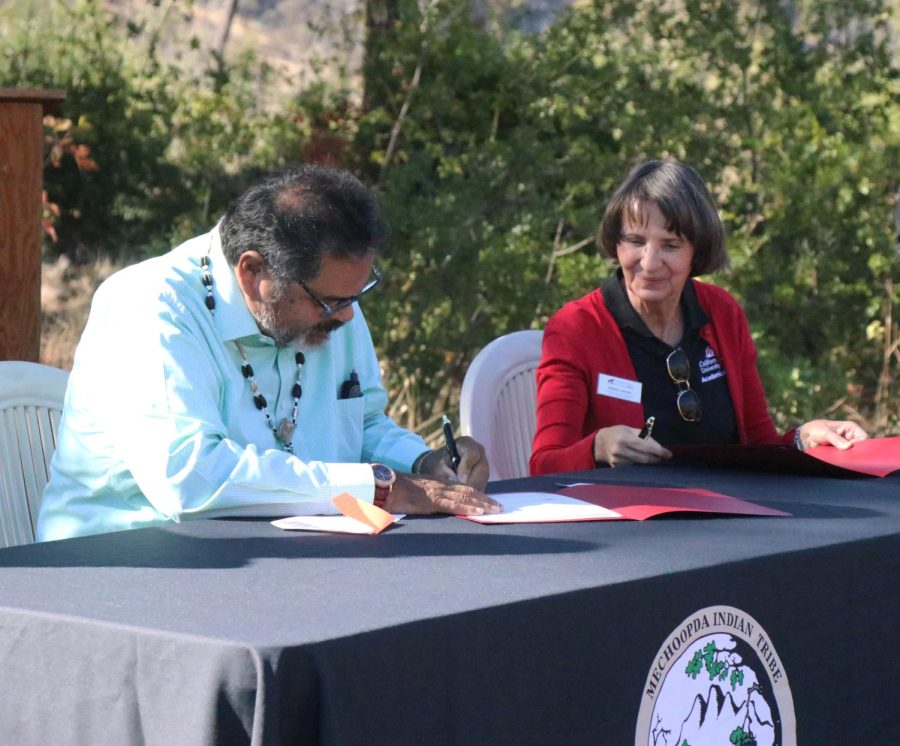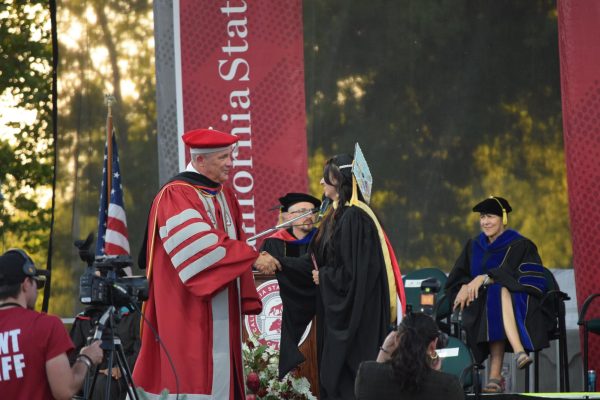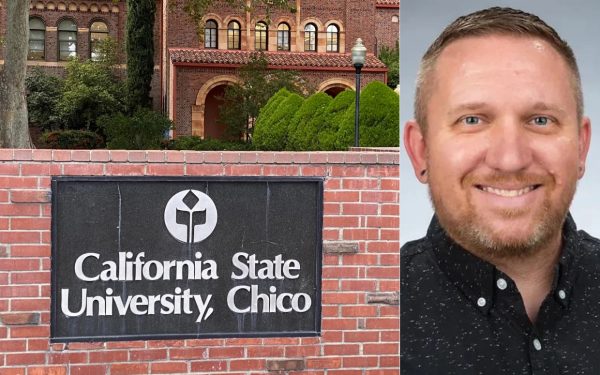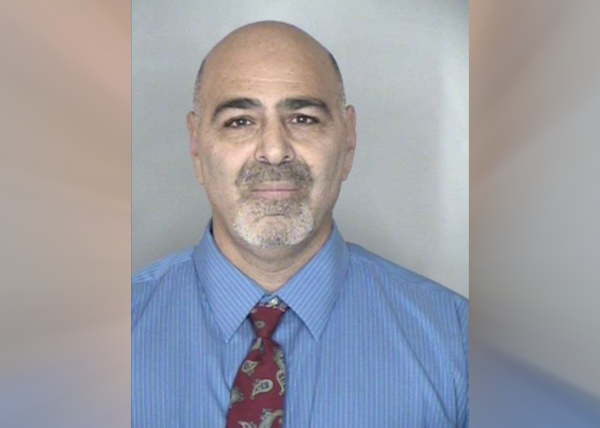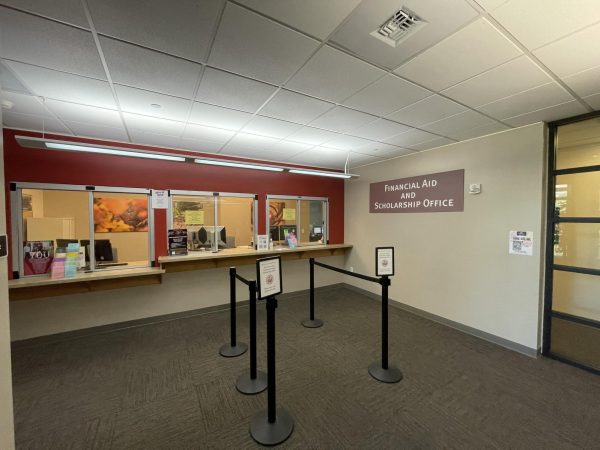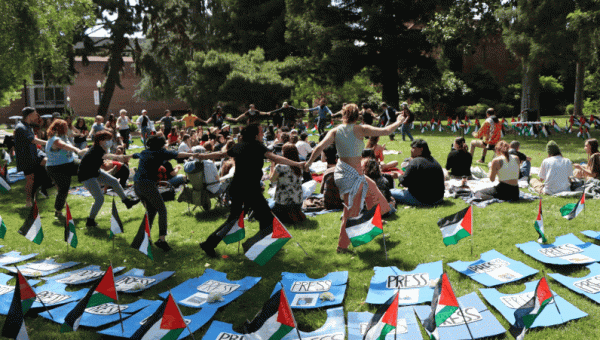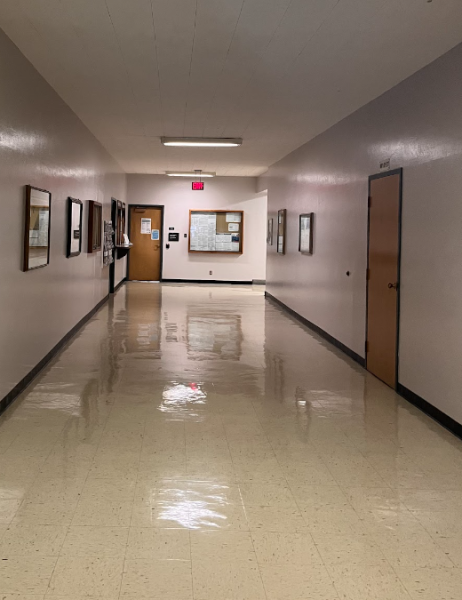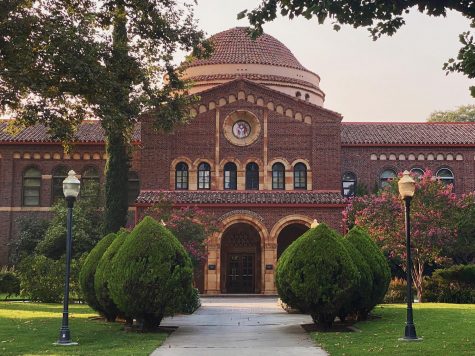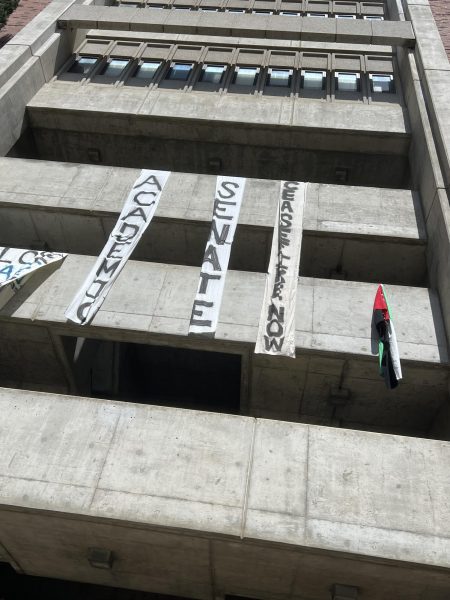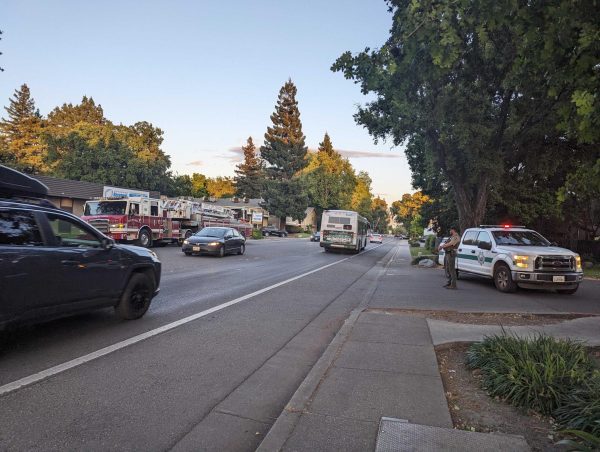Partners in preservation: Chico State and the Mechoopda Tribe’s historic land transfer
Chairman Dennis Ramirez and Chico State Provost Debra Larson sign documents at the end of the transfer ceremony. Photo by Noah Herbst, taken Sept. 23.
On the morning of Sept. 23 history was made when ownership of the Butte Creek Ecological Preserve was transferred from Chico State Enterprises to the Mechoopda Indian Tribe of Chico Rancheria, the original inhabitants of the land.
This transfer was the first of its kind in the state of California, now possible due to the recent passing of Assembly Bill 379, a bill that permits the Wildlife Conservation Board to work much more directly with California Native American Tribes.
The ceremony had several speakers, including: Assistant Executive Director of California Wildlife Conservation Board, Rebecca Fris, Chico State President, Gayle Hutchinson, Chico State Provost and CSE board President, Debra Larson and Mechoopda Chairman Dennis Ramirez.
Varieties of oak trees shaded the audience, which consisted of representatives from Chico State and government agencies, members of the press and members of the Mechoopda tribe. They listened earnestly as speakers discussed the great deal of work that was required for the transfer to be plausible, with partnership as a central theme.
In a press release from Chico State, Hutchinson, who is also the presidential liaison for the California State University Native American Initiative, delivered a statement about the University’s relationship with the land to an audience of smiling attendees and chirping birds.
“The University has owned the property since 1998 and for the last several decades has hosted thousands of K-12 students on educational field trips,” Hutchinson wrote. “We are pleased that these activities will continue as we proudly partner with the Mechoopda on this important land transfer agreement.”
Hutchinson also emphasized how the ”hands-on learning site” had benefited students across different fields, and was essential to conducting research for “water quality, wildlife, fire prevention and other areas of interest.”
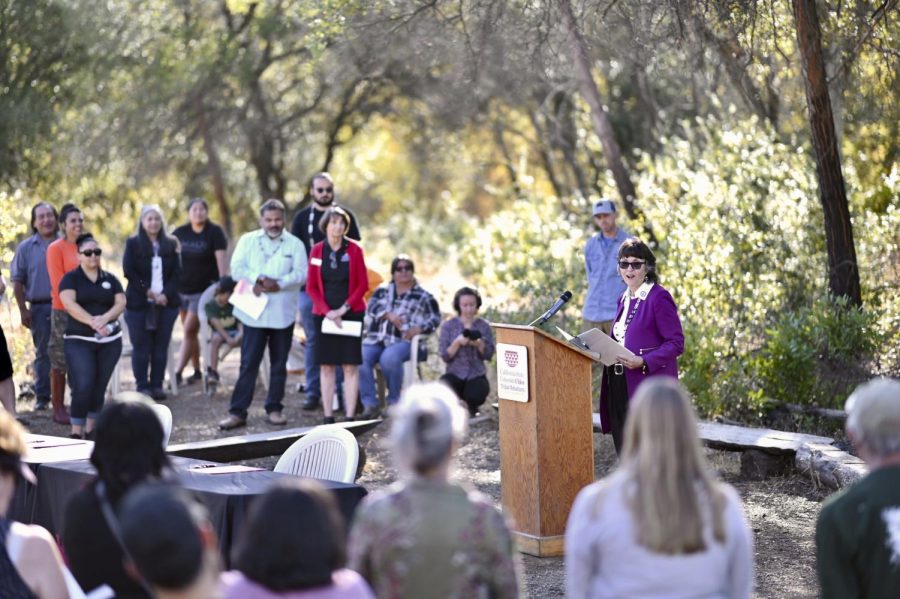
There were several times where special thanks was given to James Gallagher (R-Yuba City), the Assemblyman sponsored the legislation that made the transfer feasible.
Additional thanks went out to Rachel McBride-Praetorius, director of Chico State’s Office of Tribal Relations, and to Eli Goodsell, Chico State’s Ecological Reserves director. Both were credited with pitching the idea to Hutchinson over two years ago, and working with the community to get the legislation passed.
Ramirez finished off the ceremony and discussed the importance of the land, both to the Mechoopda tribe and the community as a whole.
“Words cannot begin to describe the importance of Butte Creek and Butte Creek canyon to our people,” Ramirez said. “It is with great honor that we become stewards of these sacred Indigenous lands once again. We look forward to getting to work and accelerating the property’s recovery process so that it can once again host visitors and educational field trips.”
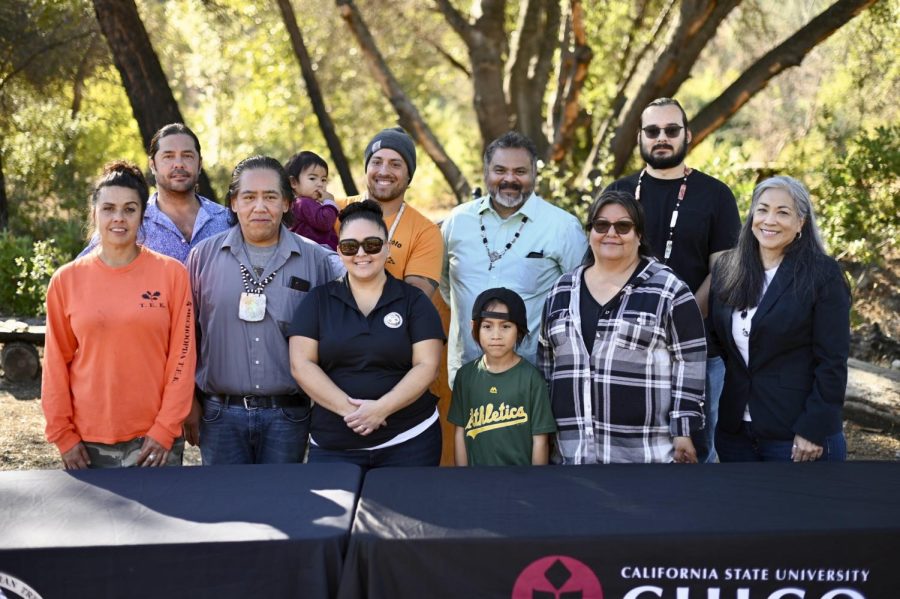
“When we look at this land, we see our home.”
Chairman Dennis Ramirez
This section of Butte Creek also has significant environmental importance as well. The area is home to populations of the western pond turtle, a species that is not threatened or endangered, but highly vulnerable therefore a subject of concern. Butte Creek also has populations of yellow-legged frogs, which is an endangered species.
It’s also home to the largest self-sustaining salmon run in the state of California. According to the Northern California Water Association, in 2021 over 21,000 Chinook salmon returned to the upper reaches of Butte Creek.
Chico State originally purchased the 93 acres of Butte Creek Ecological Preserve in 1998 through the use of state and federal grants. This area, which includes over a mile of frontage to Butte Creek, is a part of the Mechoopda tribe’s ancestral lands. Alas, during the 19th and 20th centuries the area experienced severe environmental degradation which was a result of years of gold and gravel mining in the region.
He-Lo Ramirez, Chico State graduate and director of Environmental Planning and Protection for the Mechoopda Tribe, said that during the period of gold mining, the top 10 to 15 feet of topsoil was removed from the area, something that it is still recovering from.
The BCEP saw further damage after it was ravaged by the Camp Fire of 2018, when 95% of the vegetation in the preserve was burned.
While the Camp Fire caused extensive damage, it’s a misconception that all fire is harmful to the landscape.
In an interview with Ecological Reserves director Eli Goodsell from May of this year about land stewardship, he spoke about the important role fire has played in managing our ecosystem.
“ … Fire was removed from the system due to aggressive fire suppression over the past 100 years, our carbon and our forests and our densities have become completely unnatural and way over-stocked,” Goodsell said, “So when a fire comes through it’s super catastrophic because all of this fuel is on the ground, all of these forests are overstocked with trees, and so we try to bring that natural system back in and whether that’s through fire or prescribed fire.”
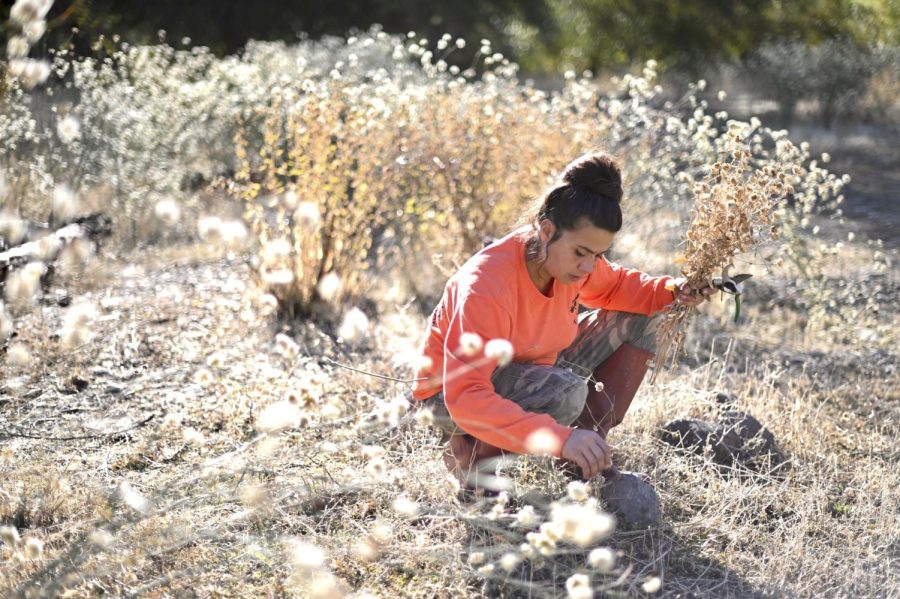
There’s a great deal of faith in the members of the Mechoopda tribe and their techniques as they continue the process of stewardship. Gallagher, the assembly member who introduced the bill that made this transfer possible, was quoted in a Chico State press release as saying:
“I’m honored that the State of California returned a parcel of culturally and ecologically important land back to its rightful caretakers. The Mechoopda Indian Tribe is the most qualified stewards of the Butte Creek Ecological Preserves to manage the land and its wildlife and plants as it recovers from the 2018 Camp Fire.”
He-Lo Ramirez said the plan is to use the area to teach people about fire ecology, use fire as a tool and practice other forms of land stewardship. He believes that area will have plenty of examples of what land stewardship should look like — without overdoing it.
Noah Herbst can be reached at [email protected] or @NoahHerbst13 on Twitter.








